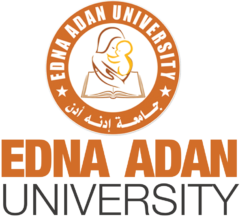Introduction:
Nutrition plays a fundamental role in human health, influencing individual well-being and shaping population health outcomes. An undergraduate program in nutrition provides students with the knowledge, skills, and expertise to promote healthy eating habits, prevent diet-related diseases, and address nutritional challenges at the individual and community levels. In this detailed exploration, we will navigate through the structure of a typical undergraduate program in nutrition, encompassing its curriculum, practical experiences, and the essential elements that prepare students for careers in the field of nutrition.
Admission Process:
Admission to an undergraduate program in nutrition typically requires a strong academic background, particularly in science and health-related subjects. Prospective students are often expected to have completed high school with coursework in biology, chemistry, mathematics, and nutrition. Additionally, universities may consider standardized test scores, letters of recommendation, personal statements, and relevant extracurricular activities demonstrating the applicant’s passion for nutrition and commitment to promoting health.
Structure of the Nutrition Undergraduate Program:
1. Foundations of Nutrition Science:
– The early stages of the nutrition program focus on foundational courses in nutrition science, including biochemistry, physiology, anatomy, and metabolism. Students gain an understanding of the biochemical processes involved in nutrient metabolism, energy balance, and the role of nutrients in supporting optimal health.
– These courses provide the scientific foundation necessary for understanding the relationship between diet and health, as well as the impact of nutrition on the prevention and management of chronic diseases.
2. Nutrition Assessment and Counseling:
– Core courses in nutrition assessment and counseling equip students with the skills to evaluate dietary intake, assess nutritional status, and develop personalized nutrition plans for individuals and populations. Students learn about dietary assessment methods, nutritional screening tools, and principles of behavior change.
– Through case studies, role-playing exercises, and practical assignments, students develop effective communication skills and counseling techniques to support individuals in making healthy food choices and adopting sustainable lifestyle behaviors.
3. Community Nutrition and Public Health:
– Courses in community nutrition and public health explore the social, cultural, and environmental determinants of dietary patterns and health outcomes. Students learn about nutrition policy, food systems, food insecurity, and strategies for promoting nutrition education and health equity.
– Field experiences, community-based projects, and service-learning opportunities provide students with firsthand exposure to community nutrition initiatives and interventions, fostering collaboration with community partners and stakeholders.
4. **Nutritional Sciences Specializations:**
– Many undergraduate nutrition programs offer specialization tracks or concentrations that allow students to focus their studies on specific areas of interest within the field. Common specializations include clinical nutrition, sports nutrition, public health nutrition, food science, and dietetics.
– Specialization tracks provide students with in-depth knowledge and skills tailored to their career goals, preparing them for advanced study or entry-level positions in their chosen area of nutritional sciences practice.
5. Research and Applied Learning:
– Research literacy and inquiry skills are integral components of the undergraduate nutrition program. Students learn about research methods, study design, data analysis, and interpretation, preparing them to critically evaluate scientific evidence and contribute to the advancement of nutritional sciences.
– Applied learning experiences, such as internships, practicums, and research projects, provide students with opportunities to apply their knowledge and skills in real-world settings, gaining practical experience and professional competencies relevant to their future careers in nutrition.
Practical Experiences:
In addition to coursework and research experiences, students in nutrition programs may engage in internships, clinical rotations, and community outreach activities to gain practical skills and hands-on experience in diverse nutrition-related settings. These practical experiences enhance students’ professional development, cultural competence, and capacity to address the nutritional needs of individuals and communities across the lifespan.
Conclusion:
Completing an undergraduate program in nutrition is a transformative journey that prepares students to become leaders, advocates, and innovators in the field of nutrition and public health. Through a combination of rigorous academic coursework, practical experiences, and research opportunities, future nutrition professionals emerge with the knowledge, skills, and passion needed to promote health and well-being through nutrition education, counseling, and advocacy. By embracing the core values of nutrition – evidence-based practice, cultural competence, and social responsibility – graduates of nutrition programs are poised to make a meaningful impact on the health and nutrition of individuals, families, and communities, advancing the vision of a healthier, more nourished world for all.
